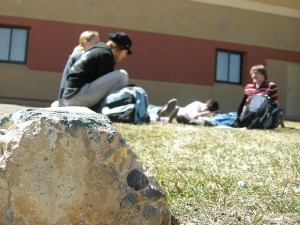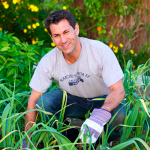Teens at Home?
 Why do teenagers always seem to act their worst when they are home around their families? It’s true, don’t you think? We all become confused when we hear those stories from our friends about how polite, engaging, vocal, expressive, and endearing our little “teen angels” are at their house. And, when they tell you how lucky you are to have them, you pinch yourself to make sure this is not a dream. If they only knew what went on behind the closed doors of “home” you think. If they only knew, what would they really think then? Unless of course they had a teen at home too. Take Bill and Sherry. For the past two weeks their 13 year old ,not-so darling, daughter, Chloe, has refused to speak to either of them after they took away her iPhone when she forgot to text her mother from the school dance last Friday night. Since then, Chloe has refused to communicate with either parent other to tell them that she “hates” them, slams her door whenever she enters or leaves the house and told them that she plans to join a cult and tour North Korea this summer. Needless to say, Bill and Sherry are afraid and worried that she must be falling apart all over the place and were about ready to call my office, but wait. To their surprise, their semi-annual parent-teacher conference yesterday left both parents in shock. As Mrs. Smith told Chloe’s parents that she was a delight in class, getting almost all A’s, was a leader, and a lovely young lady, Bill asked Mrs. Smith if she was sure she was referring to “their” Chloe. Mrs. Smith laughed in delight and said, “ remember she is 13 and is your child, not mine”.
Why do teenagers always seem to act their worst when they are home around their families? It’s true, don’t you think? We all become confused when we hear those stories from our friends about how polite, engaging, vocal, expressive, and endearing our little “teen angels” are at their house. And, when they tell you how lucky you are to have them, you pinch yourself to make sure this is not a dream. If they only knew what went on behind the closed doors of “home” you think. If they only knew, what would they really think then? Unless of course they had a teen at home too. Take Bill and Sherry. For the past two weeks their 13 year old ,not-so darling, daughter, Chloe, has refused to speak to either of them after they took away her iPhone when she forgot to text her mother from the school dance last Friday night. Since then, Chloe has refused to communicate with either parent other to tell them that she “hates” them, slams her door whenever she enters or leaves the house and told them that she plans to join a cult and tour North Korea this summer. Needless to say, Bill and Sherry are afraid and worried that she must be falling apart all over the place and were about ready to call my office, but wait. To their surprise, their semi-annual parent-teacher conference yesterday left both parents in shock. As Mrs. Smith told Chloe’s parents that she was a delight in class, getting almost all A’s, was a leader, and a lovely young lady, Bill asked Mrs. Smith if she was sure she was referring to “their” Chloe. Mrs. Smith laughed in delight and said, “ remember she is 13 and is your child, not mine”.
Face it, Parents have the ability to bring out the best and worst in their children. So much of how our kid’s act has to do with how we choose to parent and respond to them but also has to do with the child’s temperament and phase of development they are going through. Remember parents, Adolescence is a phase , okay a tough phase, but it is a phase nevertheless, with a beginning and end. They will grow up to be an adult, it just takes a Village to get them there and we hope healthy.
Teenagers are confusing. They are confused themselves. Sandwiched between both wanting to be independent but still needing their parents for lots of things while going through a multitude of both biological and psychological changes, they are vulnerable creatures. Gauky bodily changes, body hair, pimples, homework, social status, and the agonizing list continues. Just ask a teen. They do love to complain and is one way to get them to actually talk to you. They actually do get physically tired from life and also from growing and sleeping in on the weekends is sometimes because they are genuinely tired, not just lazy.
To love an adolescent, you have to know them and what they are going through. This is difficult though because they don’t like to talk to their parents much anymore – a phase thing – they will talk again when they feel strong, but parents generally need to “infer” what’s going on with them based on remembering one’s own teenage joys and blunders, and responding to them with empathy, love, and needed limits to help them manage those tough times. Teens do need limits or they may not make it to adulthood as their natural level of judgment is at best “inconsistent” as they often feel immortal. It’s a teen ego-thing. The healthy teens seem as though they have the world by the tail outside of home because they save their plethora of feelings and needs for where they feel the safest, home. As a baby they should’ve learned that mom and dad take away their stress and make it all better make it all better. This is a good thing and the teens have this experience stored somewhere in their mind. Therefore, there is a sense of comfort being able to let down the outer image when in a safe place. It’s the savvy parent who can realize that those home battles are in the service of healthy development and it helps to laugh ( inside laugh) of some of their dramatics as long as no one gets hurt or something broken. I could say “encourage your teen to talk about their feelings with you”, but that’s not developmentally going to work at least for most teens. A few words here and there ; telling you all of the things you do wrong as a parent, and straining to be respectful, is more realistic. Don’t ask them questions, make comments about things you know are going on for them or comment on their mood – “you seem happy today.” You may get a sentence of a response this way rather than some sort of grunt.
So, how do you survive a teen at home? Ride out the storm with them. Assure them that you are in for the ride sitting next to them serving as their wingman when they can’t steer the ship on their own. But, when they do navigate well, make a big deal about it and tell them they should feel good and proud. Teens do love to feel good. This they do have in common with adults.
Finally, to help you better understand what you are dealing with, here is how to understand emotionally where a teen will often be developmentally at home. Merely take the first digit off their teenage age and you will see the toddler-equivalent : 13 = 3, etc. By 18, ( 8 ) , they start to become more rule bound and not so random. Once into the 20’s, no need to take off any digits, they have become “real” adults who talk to you again like an old friend and magically ask you about your day.
So the next time your 13 year-old sais “really dad?,” smile and know your teen is likely right on track and not just being a pain in the ass. Good job mom and dad.
______________________________________________________________
Dr. Keith Kanner is a Licensed and Board Certified Clinical Child, Adolescent, and Adult Psychologist and Psychoanalyst. In addition to a full-time private practice in Rancho Santa Fe, California, he is an Assistant Clinical Professor of Psychiatry in the School of Medicine at the University of California San Diego where he teaches both human development and also trains medical students how to better understand and relate to their patients. He also serves as the Director of Clinical Counseling for La Jolla Country Day School in La Jolla, California, and is a Clinical Professor at The San Diego Psychoanalytic Society and Institute. Dr. Kanner also sits on the National Board of Directors for Kids Korps USA, which is the largest organization in the country that teaches children and adolescents the importance of volunteering to help the community at large. As a father of three children, he is also a dedicated baseball, football, and soccer coach.











You must be logged in to post a comment Login